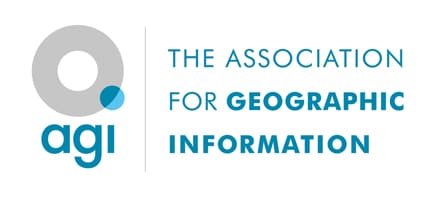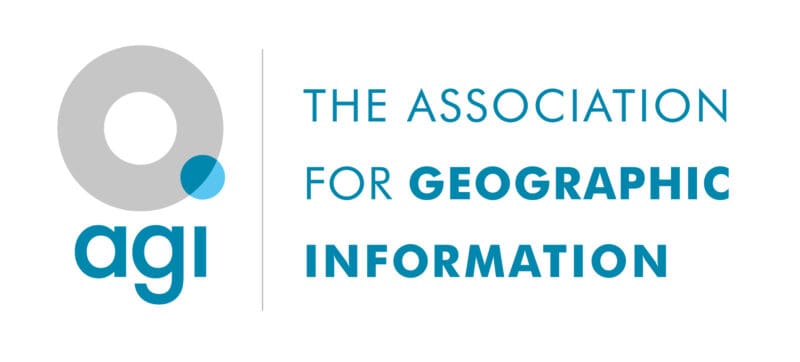This webinar was the third and final online event to explore the principles of the Locus Charter and what they mean in practice for us as practitioners and professionals who use location data, how they might change how we work, and how we, as a community of location data professionals, can learn from each other and support good practice.
The webinar looked at the remaining three principles: to protect privacy, prevent identification of individuals and provide accountability. The webinar was chaired by Benchmark Initiative Co-Director, Ben Hawes, and our panellists were Liz Hughes, Chief Executive of MapAction and James Kavanagh, Director of Land, at the Royal Institution of Chartered Surveyors.
The advice from the panel included:
Ask: “what’s your data for?”
- Understanding data provenance is key. It is incumbent on professionals to find and use data with definitive and clear provenance (e.g. state-backed data such as the foundational geospatial data published by Ordnance Survey, UK Hydrographic Office or HM Land Registry). We must be alert to the limitations of open-source data or data derived from social media or crowd sourced mapping where there is no verifiable provenance. We are often alert to data security and GDPR, and we now need to expand that to the ethical uses of data, issues of bias, the use and reuse of data over time.
- What’s the use case? Identifying the use case of data is crucial to understanding what data to collect and how; data use; and data retention and disposal as ethically appropriate.
- Context is everything: the social context and impacts of data and data collection can vary between geographies, vulnerabilities and cultures – and these need to be fully understood by us as professionals mindful of our own ethical behaviour and needs for transparency. For instance, in the international sphere organisations like the World Bank and UN bodies are often working with countries who have varying socio-cultural or economic views on individual rights to data privacy and acceptable levels of transparency.
- In some cases, greater transparency could lead to increased risk, for example, communal ownership of land by indigenous groups can increase risk of exploitation. And in other cases, transparency is the norm, for example in Denmark, it is considered ‘acceptable’ for individual tax data to be public, but it would not be in the UK. In the UK, the focus of privacy legislation is on the data protection of individuals, not the collective rights and benefits of sharing data about people, or transparency about those collective data about places. The view of the International Committee of the Red Cross is that there may be reasons to retain individual data for historical purposes where justice, repair or reparation could become important.
“Don’t be too clever, too glitzy or too complicated”
- Use clear explanations: it can be tempting to demonstrate the complexity of our work, but we must ensure that we are communicating effectively and clearly with decision-makers and consumers. We must recognise that not all decision-makers have the technical knowledge to understand what they are seeing or using. This is especially true in situations such as humanitarian emergencies when speedy analyses are essential to finding solutions. End-users and consumers also often need well-communicated simple solutions to complex problems (not information that isn’t relevant or useful)
- We need to help people be informed citizens, and we need to be aware of potential generational digital divides and their impacts. Some consumers are more adept than others at turning off location tracking and understanding the implications of being tracked. We need to make sure people have the opportunity to be informed and make informed choices, and that requires simple and understandable language.
- Communicate both the benefits and risks of tracking people with location data. A more nuanced understanding is needed of the trade-off between location tracking of individuals (a person’s private rights to anonymity) and the collective or mass location tracking for certain purposes, e.g. gaining insight on trends or patterns within places. We need to segment the use of geospatial data and technologies in the public good (e.g. in the property market or mass transit) from other uses which could lead to misuse. It is clear that companies increasingly want to follow/track people to influence their behaviour, and this could be prevalent for many years to come. The Geospatial Commission, Sciencewise, Traverse and the Ada Lovelace Institute are working on public dialogue to better understand the public’s view of this trade-off and the wider use of data, aiming to produce guidance by spring 2022.
“Accountability is a way of life”
- Scrutiny: to promote effective scrutiny requires an awareness of the unequal exchanges or power imbalances that can exist in digital markets. It can be difficult to deal with people who disagree with you! Nonetheless, ethical considerations require engagement, engagement invites scrutiny, and transparent response engenders trust and accountability. One example of effective scrutiny in action could be the acknowledgment of any power imbalances in the acquisition/use of location data, or the public communication of the power and effectiveness of certain geospatial technologies.
- Organisational accountability: Trust can come through clients, the public, through regulatory regimes (where they exist or are relevant) which hold people to account, or through organisational responsibility and accountability. For example, within an organisation, leading people through complaints systems or through enforcement rules, can help to trace courses of action and build an ethical and responsible reputation. Taking this a step further into the international sphere, increasingly desirable systems for environmental and social governance (ESG) can also be a part of the solution to show organisational accountability through wider, public economic metrics.
- Early career professionals: it is also important to talk to those coming into geographic professions about accountability and the need to engender trust and design in ethical considerations from the beginning of a project. It is also important that our professional bodies/associations set firm boundaries about what is and is not good behaviour and the consequences (e.g. being stripped of membership) if practices lead to misuse.
Useful links:
- The Geospatial Commission, Sciencewise, Traverse and the Ada Lovelace Institute location data ethics project
- Advancing civic participation in algorithmic decision-making: a guidebook for the public sector
- Ethical considerations when using geospatial technologies for evidence generation:
The webinar was recorded and is available to view.
Disclaimer: The publication of AGI member press releases is a member service. The AGI neither approves or endorses the contents of a member’s press release, nor makes any assurance of their factual accuracy.

